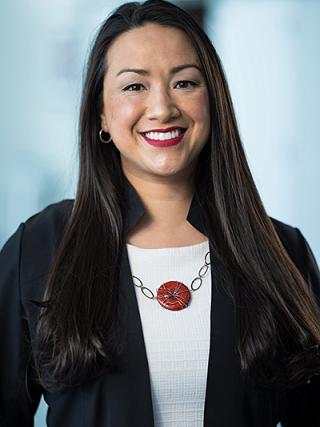
Can Social and Family Networks Improve Our Health?
More than 37 million Americans, or roughly one in nine, live with diabetes. While incredible advances have been made in treating the condition, patients still lack the care, education, and support they need to treat their disease. Crucially, insulin prices have increased 10-fold in the past decade, with the cost to some patients approaching $10,000 per year for the life-saving medication.
When Michelle Litchman, PhD, medical director of the Intensive Diabetes Education and Support (IDEAS) Program at U of U Health, began her medical career as a nurse, she couldn’t have known that she would go on to devote herself to meeting the needs of people with diabetes. She later decided to go back to school to become a nurse practitioner specializing in diabetes care so that she could develop long-term relationships with the patients she saw. Now, with a PhD in nursing, her research focuses primarily on the intersection of diabetes, digital health technology, and health disparities.
In her role as nurse practitioner at the Utah Diabetes and Endocrinology Center, Litchman has observed the struggles patients go through to get their medications. “One day in clinic, a patient described to me that they had purchased a garbage bag full of diabetes supplies from someone they had met in an online classified ad,” Litchman said. “This exchange took place in a parking lot.”
“What we call the ‘underground exchange,’ patients described as the ‘life exchange,’” Litchman said. “You see, without it, they couldn’t live.”
To learn more about these black-market interactions, Litchman began exploring online diabetes communities, where she would read about people’s struggles obtaining medication and others' offers for help. To quantify these interactions, Litchman and her team conducted a nationwide survey and found that while 93% of the respondents had health insurance more than half engaged in donating, trading, borrowing, and purchasing diabetes medication and supplies from one another.
Litchman’s survey results have been covered by NPR Science Friday, The Doctors, CNN, and others.
In addition to her research into the underground insulin market, Litchman tirelessly advocated for the passage of Utah State Legislature bill, HB0207, which became law in April 2020. The bill increases access to insulin by capping co-pays at $30 and allows emergency prescription refills.
Beyond paying for insulin, Litchman says that many recently diagnosed patients find it challenging to make time to visit the numerous specialists that support people with diabetes, including psychologists, dieticians, and nurse practitioners. Thanks to a grant from the Larry H. and Gail Miller Family Foundation, Litchman and her team at the IDEAS program host “boot camps” where patients and their supportive care partners gather in small group settings with multiple specialists in a single day.
The IDEAS program boot camps have had encouraging outcomes, including improvements in patients’ A1C (average blood sugar) levels, reduced burnout, and increased self-care behaviors such as glucose monitoring, medication adherence, healthy eating, and exercise.
Litchman and the IDEAS team have since adapted the one-day boot camp for different audiences. One version is delivered via telehealth sessions to both English speakers and Spanish-speaking immigrants and refugees in rural populations. Another version provides the intervention via sign language and closed captioning for deaf adults, one in four of whom are diagnosed with diabetes in the U.S.
“This is particularly important to me because my mother and five other family members are deaf, and I have seen repeatedly how the health system has let them down,” Litchman said. “Access to the diabetes education, care, and prescriptions that you need to be successful can make a world of difference.”
- Written by Chris Palmer
